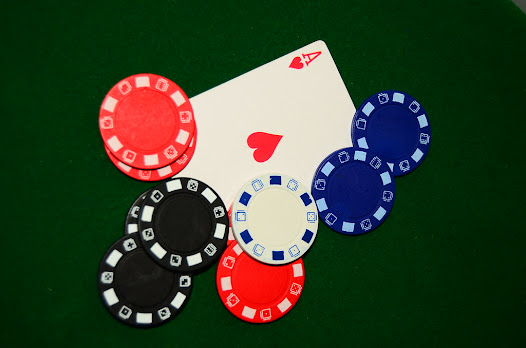It can be difficult to maintain happy, healthy relationships given all the events of the past few years — ranging from economic to political and otherwise. You’re not alone, either. Over 89% of Americans report having difficulty navigating their personal lives amid current circumstances. Learning more about how to manage your relationship can help you make it through. To do so, consider drawing your wisdom from different sources. One unconventional place you can learn from? Poker.
Credit: Poker Photos under CC BY 2.0 - no changes were made to the image
Above all else, poker is a game of the mind — and it teaches countless skills also valuable in real life. Take it from Phil Hellmuth, one of the best poker players of all time. His years of poker experience have helped him improve his own marriage in terms of temperament, while he credits marriage for improving other key areas of his life. In PokerTube’s 2021 article Phil Hellmuth and Kathy Sanborn, he explains:
“I put her on a pedestal, but there's now a steadiness and a calmness. When you work hard on your primary relationship, great things happen to your other relationships. You become a better, smarter man.”
Indeed, there’s a lot that poker can teach you about relationships. Below are a few things you can learn from it.
Better Communication
Active listening and observational skills play a huge part in poker. Being able to anticipate your opponents’ next moves puts you in a better position to win. You can start by analyzing the banter shared between players. Paying attention to their body language helps you use verbal and nonverbal cues — like bluffs and poker faces — to further decipher your opponents.
In your relationship, this can give you a better sense of what needs to be said in specific situations, such as if your partner is sad or upset. If they’re not in the mood to talk, you can read their body language and figure out what to do to make them feel better. Ultimately, poker can improve how you communicate and even demonstrate love through gestures — two things that we believe signify a happy and healthy relationship.
Problem-Solving
Just like in your personal life, playing poker is a matter of balancing the facts you know — like poker statistics and probabilities — and giving in to any gut feelings you have when making your next move. As you play, you’ll get better at determining what the problem is and deciding whether to solve it by asserting the facts, making a bold move, or simply folding your hand.
You’ll learn how to be fairer in major discussions — should you move with your partner to a new city after they get a once-in-a-lifetime job offer? — and prevent them from escalating into arguments. In the end, you’ll also know which solutions will benefit your relationship the most moving forward.
Emotional Maturity
If there’s anything unappealing about poker, it’s running into sore losers, ungracious winners, and players full of ego. They’re angry when they lose, boastful when they win, and tend to flex their muscles instead of playing the game. The remedy for all these types of players? Emotional maturity.
Knowing how to control and balance your emotions gives you a level head that’s valuable both in the poker room and in your relationship. It keeps you from automatically responding with anger to a bad hand or relationship issues. This arguably makes emotional maturity a foundation for the skills above. With a level head, you can communicate clearly and more effectively so you can solve problems in more sustainable and rewarding ways.
Relationships can be hard, but they’re always worth the effort. Turning to multiple sources of wisdom — including poker — can only improve your relationship for the better.

